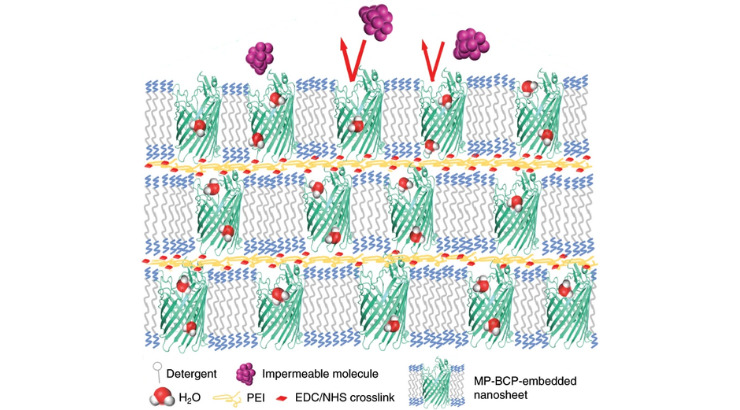An Organic Solvent Method for Preparing Biomimetic Membranes
ID# 2018-4768
Technology Summary
A group of Penn State researchers developed a biomimetic channel-based membrane fabrication process using pore-forming membrane proteins packed in block copolymers. The resulting membranes are micron-sized 2D sheets, which can be assembled using layer-by-layer depositions into centimeter-scale films. A commodity organic solvent mixture was applied as an alternative to expensive detergents, decreasing the cost and reducing the time required to assemble centimeter-scale films from six days to an economically practical timeframe of two hours. The membranes contain pores with tunable diameters between 4 and 15 Å, and for each membrane the pore size is uniform.
Application & Market Utility
By incorporating membrane proteins with well-defined pore size, this invention bypasses the diffusion limitations of commercial polymeric membranes to enable water permeance that is 1-3 orders of magnitude greater than commercial nanofiltration membranes with comparable solute retention. Therefore, this invention can be used as a more-effective alternative to polymeric membranes for precision separation in filtration devices such as masks, air purifiers, water filters and desalination devices in applications ranging from water treatment to small molecule separation.
Next Steps
We are seeking a commercial licensing partner. Samples of each membrane can be provided upon request.

